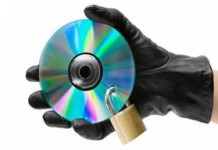 I have long maintained that ‘cannibalized’ sales—the idea that if an ebook was not available, the customer would have bought a book in paper instead—is less an issue than publishers think. I have never bought a hardback novel in my life, even pre-ebook. That sort of publication has always been out of my price range, and if you don’t make the ebook available for me to buy, I’ll simply buy nothing. But what about books which are NOT hardcover fiction? Are cannibalized sales an issue there?
I have long maintained that ‘cannibalized’ sales—the idea that if an ebook was not available, the customer would have bought a book in paper instead—is less an issue than publishers think. I have never bought a hardback novel in my life, even pre-ebook. That sort of publication has always been out of my price range, and if you don’t make the ebook available for me to buy, I’ll simply buy nothing. But what about books which are NOT hardcover fiction? Are cannibalized sales an issue there?
I present, for a case study, a book I purchased yesterday. It’s a financial book by an author who has two very popular television shows here. One of the shows (and a subsequent book, which I have read) was about getting out of debt, and now that my student loan is nearly paid off, I was ready for a sequel about what to do next. Apparently, I was not the only one—I saw yesterday through the author’s blog that she has a new book out on this very topic.
The new book is a trade paperback and was for sale at my local bricks and mortar store for $14 ($16 after taxes). I stood there yesterday afternoon for a good twenty minutes debating with myself. I suspected there might be an ebook version. But the book had charts and other illustrations; these have tended to look terrible in ebook form, so maybe I’d be better off with the paper. I finally decided that for a book like this, I did prefer the paper and so I purchased it.
Then I went home and did a quick check on Kobo. The book was $9.99 and I had a 30% off coupon code. Oops! I got it for just over $7 and will be returning the paper copy today. At more than half off, I can live with a few glitchy illustrations!
I think that the whole ‘ebook pricing’ question is always such a battleground because you’re not actually dealing with the issue of a ‘fair price’ in a vacuum: it’s the comparison your customer will inevitably make with whatever their other choices are. A $16 trade paper price when the ebook can be had for a fraction? For the customer, it’s not a hard choice. A new release hardback, for $9.99 in ebook? Fair enough. A $9.99 ebook of a mass-market paperback that goes for $6 in stores? For that situation, $9.99 does not seem as fair.
So, here is the question: why was this book, for me, a cannibalized sale? Was the ebook priced too low—or was the paper book priced too high?


































I see this terminology semantics as misleading. ‘Cannibalised’ implies something bad. What it is is ‘Substitution Sales’. It is about an industry moving form one medium to another. Will most eBook sales be Substitution Sales ? Of course they will. The real questions for me are twofold.
Firstly will the new medium bring in more readers and more reading, and hence more sales in general ? Secondly do publishers/authors make less money from individual eBooks than paper books ?
Personally I believe that the answer to the first question is yes. Everyone I know is reading more after getting an eReader. I also believe that the younger market will be inspired to read more via this new technology.
It is also my belief that the Publishers/Authors are indeed making the same money per copy of eBooks as they did on paper books, and right now the Big Publishing Groups are making a lot more because they are charging more for eBooks than paper books without incurring any printing/distribution costs. Currently they are therefore making super profits.
Two more good reasons why the term cannibalised is thoroughly misleading, though thoroughly in tune with the Publishing Industry’s determination to whinge and whine throughout this transition.
I buy plenty of ebooks that in the past I would have purchased as new pbooks, but I have purchased a huge number of ebooks that in the past would have been used book purchases had I still been buying pbooks. So in a sense a few of my purchases are “cannibalizing” (which I agree is a bad term for it) the pbook sale a publisher would have made, but for every “cannibalized” sale there are nine more that would have been used book sales that the publisher never would have seen. I read about 300 fiction titles a year so that’s quite a bit more $$$ going into publishers and authors pockets.
Publishers are making money off me like crazy due to eReading. Before I would buy 3-4 books a year – nearly always mass market paperback. Sadly I hardly ever read them for some reason.
Since getting an eReader in May 2010 I’ve purchased about 20 and read about 12.
I have to agree with the comments thus far. I am not what you would consider an avid reader. . .at all. 1998-2009 I probably purchased ~10 books, ~5 of which were from second-hand book dealers. All were for work, none for pleasure.
If each were ~$20, the chain stores received $100 (5 x $20) from me in 10 years.
Since buying an eReader in 2010 I’ve purchased 10 eBooks at prices ranging from $5 to $15. One of these was for work, the rest were for entertainment. None of these were second-hand books.
If on average I paid $10 for each book, the chain stores received $100 (10 x $10) from me in 1 year.
I had no intention to buy books with my reader (just wanted to borrow some from the library) but the convenience and lower price point was too compelling for me. Seems to me the economics are working in the industry’s favor.